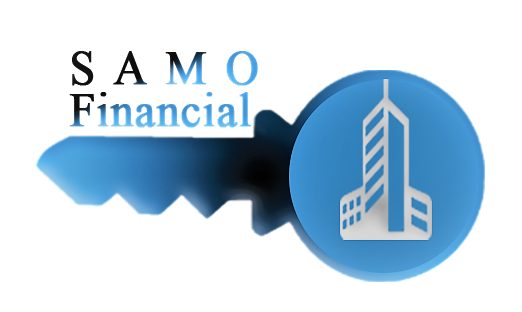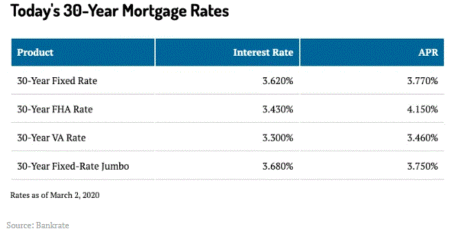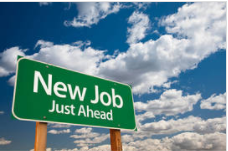What you as a Property Owner must do during COVID-19
What you as a Property Owner must do during the Pandemic
There are not a lot of good news recently in the world…let me rephrase that: we are relentlessly bombarded with increasingly grim and terrible news. Many families already lost loved ones and friends to COVID-19, while the infection and death tolls are rapidly increasing, and many people all over the world are falling sick. From the economic point of view, the news is not much better; millions of people lost their jobs, and probably just as many entrepreneurs lost or on the verge of losing their livelihoods.
Yet, we all know that someday this terrible ordeal will be over. There are glimmers of hope that world nations are finally uniting efforts to fight this pandemic and find the cure against this deadly virus.
While the vast majority of us had never in our lives experienced a pandemic such as the COVID-19, the optimist in me feels that this global health and economic tragedy still presents a teachable situation and very valuable, even if painful, lessons.
Until there is a cure, I am hopeful that individuals take important steps to concentrate their efforts in keeping their families safe, and just as essentially to help each other stay healthy as well. So, as apartment complex property owners there are a few important precautionary steps that should be taken to help tenants and ourselves stay healthy and safe.
Keeping Tenants Healthy:
1) Sterilize all common areas and especially high-touch surfaces, such as railing and doors knobs at least twice a day, for example in the afternoon and in the evening (or even more frequently). If your properties also have elevators, then place a sign inside and outside of the elevator at each floor to ask people to practice safety measures, including:
-
- Riding the elevator alone or only with their household members. Since an elevator is a closed and tight space, it is known to retain airborne virus droplets for longer durations of time, and it is especially difficult to continuously keep this type a closed space sanitized.
- Extending sleeve fabric over their hand or wearing surgical gloves before pressing elevator buttons, or better yet with an elbow instead of fingertips. This would limit the chance of infection to the tenant and to other people.
- Recommending taking the stairs as much as possible (if a tenant has to venture out). Netflix and Amazon Prime don’t really encourage a healthy lifestyle, so a little cardio while walking up a stair is better than no exercise at all.
2) We all want our tenants to stay healthy, so reinforce that:
-
-
- Tenants should follow local shelter-in-place guidance. These guidelines may differ from state to state, so refer tenants to the local official sites.
- In the event that a household member exhibits signs of illness, to seek medical attention early. Again provide the local health authority contacts, and testing centers.
- If a tenant had been tested positive for corona-virus and was not admitted to a hospital, then they should quarantine themselves at home in accordance with their doctor’s orders.
- Tenants that are exposed to potentially infected people due to the nature of their job, for instance first responders, pharmacists, bank tellers, or supermarket clerks, should consider quarantining themselves at home from other family members as much as possible.
-
3) Send out frequent communications to all tenants, as well as post it on each front entrance advising:
- That management understands that times are tough, and some tenants might have lost their jobs or that their income may have been otherwise compromised. Tenants should reach out to the property manager immediately if they foresee having a hard time to pay rent on time, so that the property manager may establish an individual rent payment plan. Explain that the national eviction moratorium is a temporary delay, and it does not mean that the rent is forgiven or no longer needs to be paid. Just like tenants, property owners can also work with their banks to potentially delay mortgage payments, however, the property has many other ongoing expenses, and just like the mortgage has to be paid, the tenants will also be required to pay rent. To illustrate with an example, one of our tenants; a small family – a mother and her adult daughter – reached out to the property manager, and explained that one of them lost her job, and the other was allowed to work only part time. The property manager offered this family a payment plan where half their rent would be paid on time, and the remaining half would be spread out over the period of four months. These tenants agreed to this payment plan.
Here’s a sample template of communication letterto tenants offered by National Apartment Association.
2. That economic assistance resources are available at the national and local governments levels, and share these resources with tenants to make it easier on them to gain economic assistance during these hardship times.
GUIDANCE ON UNEMPLOYMENT INSURANCE FLEXIBILITIES
U.S. DEPARTMENT OF LABOR – UNEMPLOYMENT BENEFITS FINDER
FAQ – FEDERAL RESPONSE TO COVID-19
U.S. DEPARTMENT OF THE TREASURY – PRESS RELEASES
In addition to the aforementioned list of sites, there are numerous state, county and local government site resources where people may be able to obtain more pertinent information and details on how and where to get help during these tough times.

Safety rules for Property Management Personnel:
As I mentioned above, a property manager is responsible for keeping tenants safe by keeping the buildings sanitized, as well as for encouraging tenants to pay rent on time. Just as importantly, a property manager is also responsible for enforcing social distancing for property management personnel and contractors.
The following steps should be taken towards increasing safety of property management employees:
- Only do the absolutely necessary repairs, which maybe endangering the life of a tenant, such as water leaks or broken window glass. Leave all non-essential maintenance requests for later times. It goes without saying, although I will say it anyway that changing a light bulb will have to wait until things get back to normal.
- Lock your property management office, and have as few people in the office while minding their social distancing, or better yet have the employees to work remotely; all requests from tenants can be handled remotely either via phone, text or email.
- Media savvy property managers should record a video of each unit and post it online. Showing vacant units may be done either virtually or by leaving a lockbox on each unit, but don’t forget that disinfect all door knobs and railings after the prospective tenants leave. I have to say that lock boxes are working out well; we were able to lease a unit in such fashion, and with minimal person-to-person interaction.
- Provide surgical gloves and masks to your personnel if these safety materials are available, and again, keep reminding employees to keep at least the 6’ social distancing rule. When maintenance people enter someone’s apartment for a repair, they should also ask the tenants to keep at least 6’ apart for health safety reasons.
Communication with Investors:
If an apartment complex was purchased via a syndication with passive investors, it is absolutely critical to communicate with investors and offer full transparency.
- When it comes to investors, the three magic words are, communicate, communicate and communicate. Nothing beats keeping your investors up to date regarding ongoing activities and developments with their investment. While they are no doubt worried about their investment, explain that health and well-being of tenants and property management personnel is equally, if not more important. Advise investors of the overall pre-cautionary measures you are taking, and offer to share with them the communications that tenants and personnel have received in that regard.
- If an investment offers a preferred return and it is cumulative, then most likely you may decide to delay paying it in the next quarter or two in order to ensure you have enough funds to pay the essential bills and expenses.
- Advise your investors that you will most likely postpone renovations unless there is a strong demand for renovated units or it is a capital expenditure issue that must be immediately addressed, such as a brand-new roof.
- If you applied for any government or bank offered programs offering to assist with the mortgage payments and other benefits, advise your investors as well. Explain that while there is no guarantee that the project will receive it, at least you took the path of least resistance and applied for this assistance.
- Make an effort to communicate with your investors on an individual basis. A call, a text or an email to ensure that they and their loved ones are staying healthy and well will go a long way; showing that you care about your investors speaks volume and supports your credibility. Express gratitude for their patience and understanding of your action plan in such tough times; these types of honest communications reinforce the connection and the trust that were initially established between you, as a syndicator and your investors.
We are all humans. We are all in it together. In such tough times it is absolutely critical to show your empathy and provide support to one another.
We will beat this together!
Interested in exploring passive investing via syndications, then apply to
Join The SAMO Club











